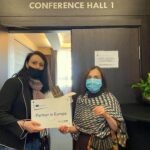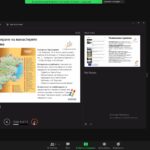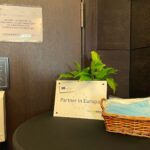The Bulgarian capital Sofia hosted an event organized by INI-Novation Bulgaria Ltd. under the European project SKIVRE on October 26, 2020.
Participants were 30 representatives from different sectors such as tourism, regional development, students at the Faculty of Theology at Sofia University „St. Kliment Ohridski“, representatives of monastic shops and retailers offering monastic products, as well as other stakeholders interested in the topic “Development of skills for the valorization of European religious heritage and good practice”.
The event presented the results that the partners in the project achieved during their two years of hard work: the SKIVRE Training Program including 10 learning modules and the illustration of many good practices. They were demonstrated during the event as well as the SKIVRE‘s online training platform, through which all training materials can be freely accessed by interested stakeholders for self-learning purposes (please see https://training.skivre.eu/main/toolbox.php).
Topics such as “Monastery production as an exciting connection between the past and the future” were presented, as well as the results of a market analysis study conducted in 20 European monasteries by the SKIVRE project partners under the lead of Ms. Angela Ivanova from INI-Novation Bulgaria Ltd. Video presentations of the good practices from Bulgaria “The Kremikovtsi Monastery “St. George the Victorious”, Tsurnogorski Monastery ” St. Kozma and Damian” and the German Monastery “Kloster Bronnbach ” were shown.
Dr. Wolfgang Kniejski, Managing Director of INI-Novation Bulgaria Ltd., presented an in-depth analysis of the role of monastic products in the development of the regions and the tourism industry. Examples of good practice were provided and many questions were discussed on how to build successful cooperation and networks of interaction between the representatives of tourism and monasteries in a given region.
Additionally, the seminar included external speakers, such as Ms. Blagovesta Chifligarova, an expert in the field of tourism in Bulgaria. She shared her experience in the field of religious tourism in Bulgaria with the other participants, presenting the topic “Religious tourism and its benefits for the development of the regions.” Other external participants also got involved and introduced the audience to their good practices.
Due to the great interest and the inability to attend in person, five participants joined and participated online in the event.
***





